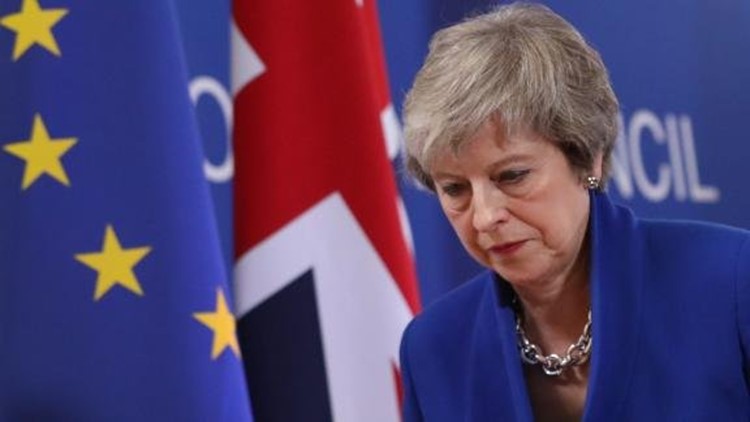Theresa May will stagger on as Britain’s Prime Minister after her government survived a vote of no confidence called in the wake of Tuesday’s devastating parliamentary defeat for her Brexit deal.
Lawmakers voted Wednesday by 325 to 306 in favor of her government remaining in power. If May had lost the confidence vote, a general election would have followed unless her government (or an alternative one) was able to win back the confidence of the House of Commons within 14 days.
May is expected to make a statement outside 10 Downing Street at 10 p.m. (5 p.m. ET).
The latest twist in Britain’s political drama came after opposition Labour leader Jeremy Corbyn called for a vote of no-confidence in the government on Tuesday night after lawmakers soundly rejected May’s Brexit deal by 230 votes. The margin of defeat was the biggest for any UK government in the modern parliamentary era.
“I do not take this responsibility lightly and my government will continue its work to increase our prosperity, guarantee our security and to strengthen our union,” May told the Commons immediately after the 19-vote victory.
The Prime Minister added that she was inviting leaders from opposition parties to meet her one-on-one tonight and over the following days to discuss how the government can move forward on Brexit.
Corbyn reiterated that May needed to ensure the UK does not crash out of the European Union without an agreement.
“Before there can be any positive discussions about the way forward, the government must remove clearly once and for all the prospect of the catastrophe of a no-deal Brexit from the EU and all the chaos that would come as a result of that,” the Labour leader said.
May in control, but weakened
In what perfectly sums up the chaotic state of British politics at the moment, many of the MPs who cast votes of confidence in the government on Wednesday were the same ones who voted against its signature policy — the Brexit deal — the night before.
May’s defeat Tuesday was largely due to a rebellion led by the right wing of her party. But if there is anyone the arch-Brexiteers dislike more than May, it’s Corbyn — someone they had no intention of opening the door for to become Prime Minister.
This week’s developments have left May in control, but weakened and without a clear way forward for her Brexit plan just 72 days until Britain is due to leave the European Union on March 29.
Britain now ultimately has several options: to delay the exit, to leave the EU with a renegotiated deal, to crash out of it without a deal, or to flip the past two and a half years into reverse and not exit at all.
Before the vote, Environment Secretary Michael Gove wound up the six-hour debate by tearing into Corbyn and praising May’s “inspirational leadership.”
Gove spoke after Labour’s deputy leader Tom Watson told the Commons that Conservative MPs “know in their hearts that this Prime Minister is not capable of getting a deal through.”
However, the Cabinet minister criticized Watson for failing to mention Corbyn once. “We have several things in common — we’ve both lost weight, him much more so. We’re both friends of Israel — him much more so. And we both recognize that Mr. Corbyn is about the worst possible person to lead the Labour Party,” Gove heckled.
What happens now?
Despite clinging onto the reins, the next few days remain treacherous for May.
She has three days to come up with an alternative Brexit approach that British lawmakers can agree on. As a way to achieve consensus, May has offered cross-party talks with lawmakers, something which she promised the government would approach in a “constructive” manner.
On Monday, May will then return to Parliament to lay out her alternative Brexit plan. If she can get it approved by lawmakers, May will look to eventually take a revised deal to EU leaders.
It sounds simple, except there’s no guarantee the EU would agree to reopen negotiations. It took over two years of painstaking debates and negotiations for May to even secure approval from EU leaders for her original (and now defeated) plan. And the clock is ticking.
If no agreement can be reached the UK edges towards crashing out of the EU without a deal altogether, in what will be an incredibly messy split.
While May has maintained that she wants the UK to leave the EU on March 29 as scheduled, she has hinted that the deadline could be extended. Earlier on Wednesday, May told the Commons the only way the EU would extend Article 50 is if “it was clear that there was a plan that was moving towards an agreed deal.”



